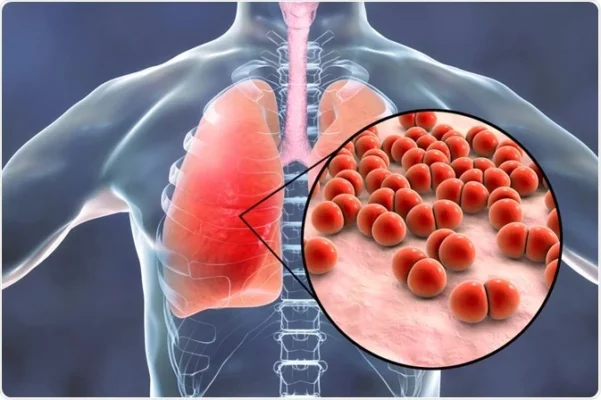How To Boost Your Immune System
Your immune system plays a very vital role in fighting against diseases and infections in your body system. Like a bodyguard, your immune system stands guard against any disease-causing microorganisms and prevents it from gaining access into your body. However, how well or how long the immune system functions solely depends on how you are able to manage it. Just like every engine can wear out or knock down, the immune system can also fail at one point hence giving room for foreign organisms to invade your body and make you sick. What then can you do to reverse this process? Should you improve on your diet? How about you take some vitamin or herbal supplements? Perhaps, some changes to your lifestyle may be able to help you enhance your immune system.
How the immune system develops
The immune system develops as a baby grows in the womb. In the first few months of life, the baby’s immune system is not fully developed. During this time, the baby is protected by antibodies passed on from the mother through the placenta and breast milk. Over time, the baby’s immune system develops and begins to make its own antibodies. This process is called immune maturation. The baby’s immune system continues to develop as they grow, and reaches maturity around age five.
Microbiome
Another important part of the immune system is the microbiome. The microbiome is made up of the trillions of bacteria, viruses, and other microorganisms that live in and on the human body. The microbiome helps to train and regulate the immune system. It also plays a role in digestion, nutrient absorption, and overall health. The microbiome is influenced by many factors, including diet, stress, and sleep.
The microbiome is a relatively new area of research, but it has already yielded some fascinating insights into the human body. One interesting thing is that the microbiome can vary widely from person to person. In fact, no two people have the same microbiome. However, there are some common factors that influence the microbiome. For example, people who eat a diverse diet tend to have a more diverse microbiome. People who live in urban areas tend to have a different microbiome than people who live in rural areas.
It gets even more interesting when we talk about how the microbiome is connected to health.
The microbiome has been linked to a wide range of health conditions, including obesity, diabetes, depression, and even cancer. It’s thought that a healthy microbiome can help to prevent these diseases, while an unhealthy microbiome may increase the risk. This is an area of active research, and we still have a lot to learn about the microbiome and its role in human health.
A recent study has found a link between the microbiome and depression. This study looked at a group of people who were diagnosed with depression. They found that people with depression had a different microbiome than people who were not depressed. Specifically, they found that people with depression had less diversity in their microbiome. This suggests that having a diverse microbiome may be protective against depression.
Weak immune system
A weak immune system can make it more difficult for the body to fight off infections and diseases. This can lead to an increased risk of infections, as well as a longer recovery time. It’s also possible for a weak immune system to cause other health problems, such as autoimmune disorders. In addition, a weak immune system can make it more difficult for the body to recover from injuries.
Factors that can weaken the immune system
There are many factors that can weaken the immune system. One of the most common is stress. When we experience stress, our bodies release hormones that can suppress the immune system. Stress can also lead to unhealthy behaviors, such as poor sleep, which can further weaken the immune system. Other factors that can weaken the immune system include malnutrition, aging, and some medications.
Specific health problems that can be caused by a weak immune system
Pneumonia
People with a weak immune system are more likely to get pneumonia, and they are also more likely to have a more severe case of pneumonia. This is because the immune system is not able to fight off the infection as effectively.

Chronic skin infections
People with a weak immune system may be more prone to developing chronic skin infections, such as boils and abscesses. These infections can be difficult to treat and may lead to scarring or other complications.
Severe viral infections
Viruses, such as the flu, can be serious for anyone, but they can be especially dangerous for people with a weak immune system. This is because the immune system is not able to fight off the virus effectively, and the person may not be able to recover on their own. Sometimes, hospitalization and even death can result from these infections.
Cancer
A weak immune system can increase the risk of developing certain types of cancer, such as leukemia and lymphoma.
Note that there are other health issues that can be caused by weak immune system
Is there any connection between hormonal imbalance and a weak immune system?
Yes, there is a link between hormonal imbalance and a weak immune system. Hormones play a vital role in regulating the immune system, and an imbalance in these hormones can lead to immune dysfunction. Some specific hormones that are involved in immune function include cortisol, estrogen, and testosterone.
Specific effects of hormonal imbalance on the immune system
Let’s start with cortisol:
Cortisol is a stress hormone that can have a negative impact on the immune system. When cortisol levels are high, the immune system can become suppressed and less effective at fighting off infection. This can lead to an increased risk of illness and a longer recovery time from infection.
High cortisol levels lead to low levels which can trigger symptoms of hormonal imbalance. This can also affect the immune system. High levels of estrogen can suppress the immune system, while low levels of estrogen can cause an overactive immune system. Also, during menopause, when estrogen levels drop, women may experience a weakening of the immune system. This can make them more susceptible to infection and illness.
Finally, high levels of cortisol can result in decreased production of testosterone. Testosterone can also play a role in immune function. Low levels of testosterone can lead to a weakened immune system.
Inflammation
Hormonal imbalance can lead to chronic inflammation, which is associated with a variety of health problems. Chronic inflammation can cause the immune system to become overworked and exhausted, leading to a weakened immune system. In addition, chronic inflammation can cause the body to attack its own tissues, leading to autoimmune diseases. So, it’s clear that there is a strong link between hormonal imbalance and the immune system.

Gut health
The gut microbiome, or the community of microorganisms that live in the gut, is closely connected to the immune system. In fact, 70-80% of the immune system is located in the gut! Therefore, an imbalance in the gut microbiome can have a major impact on the immune system. For example, an imbalance in the gut microbiome can lead to increased inflammation and an increased risk of infection.
Thyroid hormone levels
Another example is the link between thyroid hormone levels and the immune system. If the thyroid is not functioning properly, it can cause a weakened immune system.
Vitamin D
Vitamin D plays a vital role in the immune system, and low levels of vitamin D have been linked to a weakened immune system. In fact, one study found that people with low vitamin D levels were 11 times more likely to get a respiratory infection than those with normal levels. Vitamin D is also important for maintaining a healthy gut microbiome. So, a deficiency in vitamin D can have a ripple effect on both the immune system and gut health.
Click here to order instant hormonal imbalance
How To Boost Your Immune System

Here are six things you can do to boost your immune system:
Live A Healthy Lifestyle
If you are really keen on boosting your immune system, you should aim your best shot at living a healthy lifestyle. The benefits of maintaining a general healthy-living strategy can not be overemphasized. One of such benefits include: prevention of diabetes, heart disease, other chronic diseases and as well improving immunity.
Maintain A Healthy Diet
The kind of relationship between the food you eat and your body system is like ‘garbage in, garbage out.’ your body system will only process whatever food you feed it with and distribute it accordingly. This is why healthy feeding is very important. Eat a balanced diet on a regular basis. Limit your intake of fats, salt, refined sugars (added sugar), and cholesterol. Consume large amounts of fruits and veggies, whole grains, and lean protein.
Exercise Regularly
Exercise is a great way to support hormonal health and the immune system. Exercising regularly does a whole lot of benefits to the body system. Regular exercise can help to balance cortisol levels and boost the production of immune cells. Engaging in regular physical exercise can help improve your muscular strength, boost your endurance, improve your health, combat diseases, improve your mood, reduce overweight, among other benefits. Research has also shown that regular exercise can help enhance immunity.
Get rid of excess weight
Obesity can affect the functions of your body and also may also lower the effectiveness of vaccines for diseases such as tetanus. You can maintain a healthy weight by eating healthy food and engaging in regular exercise.
Quit smoking
Smoking can weaken the immune system thereby making it difficult to fight against diseases and infections. It can cause immune problems such as arthritis, rheumatoid, etc.
Check out idan gangan for lung cleansing
Get Enough Sleep
The human body system has been wired in such a way that if it does not get enough rest per time, it will break down. The recommended amount of sleep for adults is 7-8 hours per night. Sleep is critical for a healthy immune system. Poor sleep can lead to an increase in inflammation and a decrease in immune function. So, getting enough sleep each night is key for a strong immune system. Depriving yourself of sleep will have a negative toll on your immune system which can result in other serious disorders.
Avoid excessive Alcohol intake
Too much alcohol can weaken the immune system.
Immune Booster Supplements
Supplements that can enhance your immune system include Vitamin B6, C and E. all these can be gotten from a regular balanced diet. You can also buy them at a pharmaceutical store.
Herbs that boost the immune system include neem, moringa, tulsi, ashwagandha ginger, turmeric, etc.
Fekomi Immune Booster (Immunosin)
Our IMMUNE BOOSTER contains herbs that are well formulated to purify the blood and boost the immune system.
Check out fekomi immune booster
Your wellness is our concern at Fekomi Wellness
Our caring team of Fekomi wellness are experts and can help you with your health concerns. Visit Fekomiwellness to book an appointment and get started on your health journey. Kindly call our desk line on +2349074197154 for more enquiries.

Pingback: Health Benefits of Tumeric - Fekomi Herbals